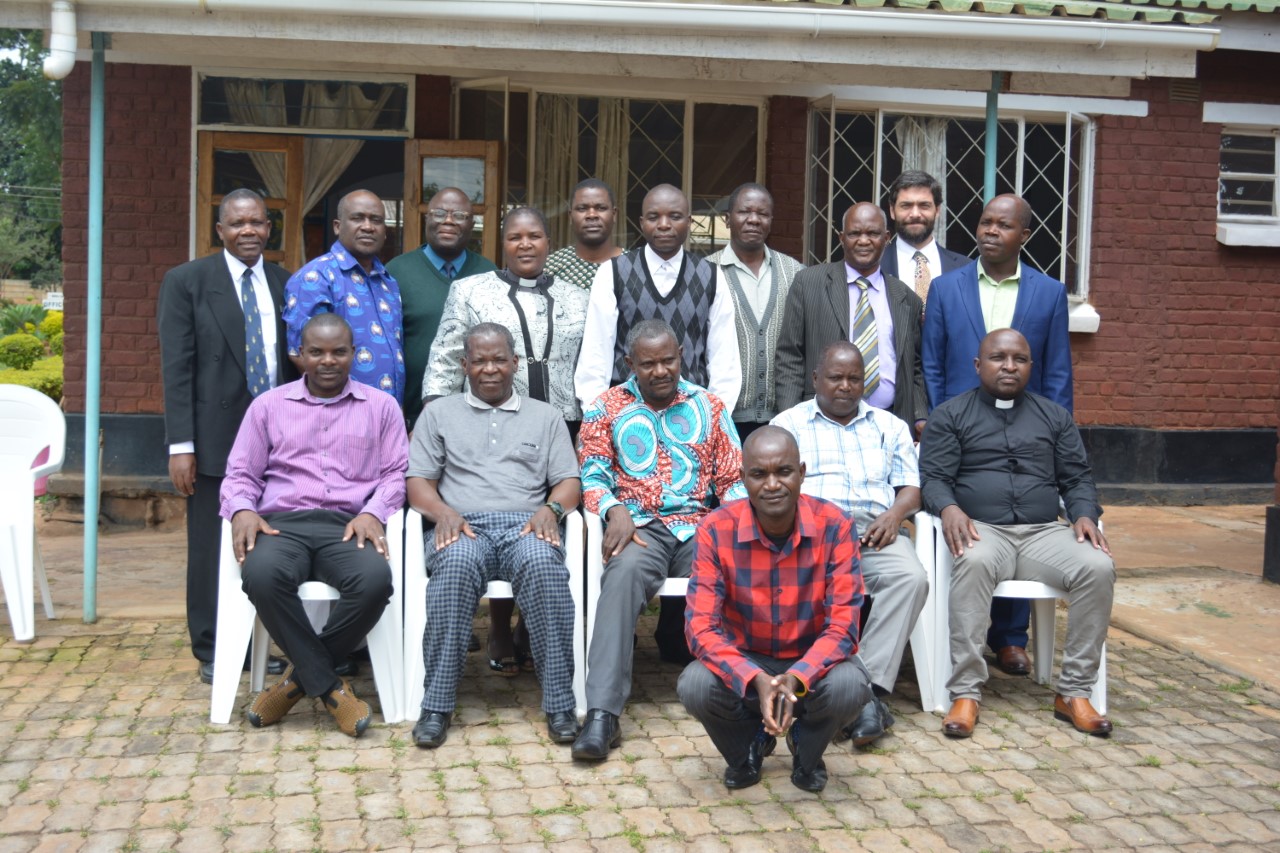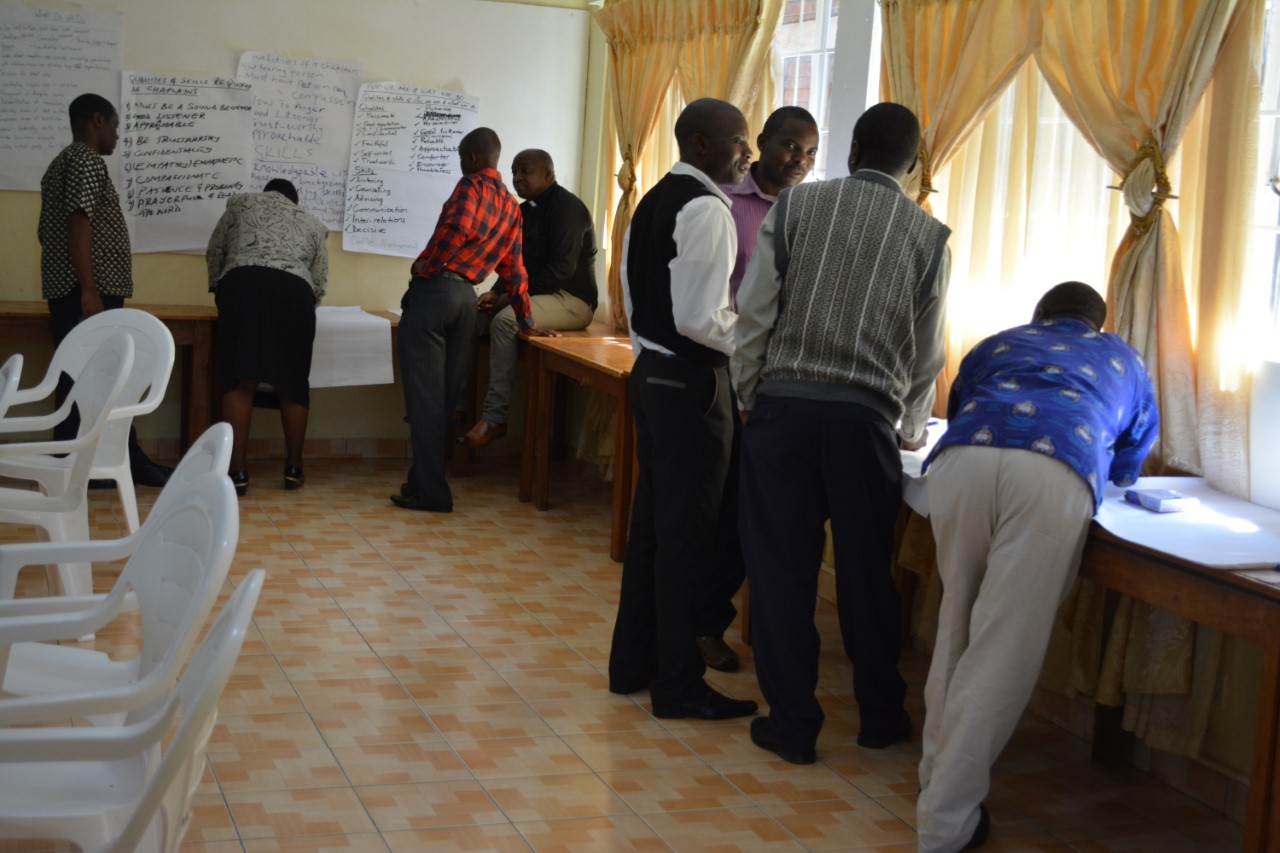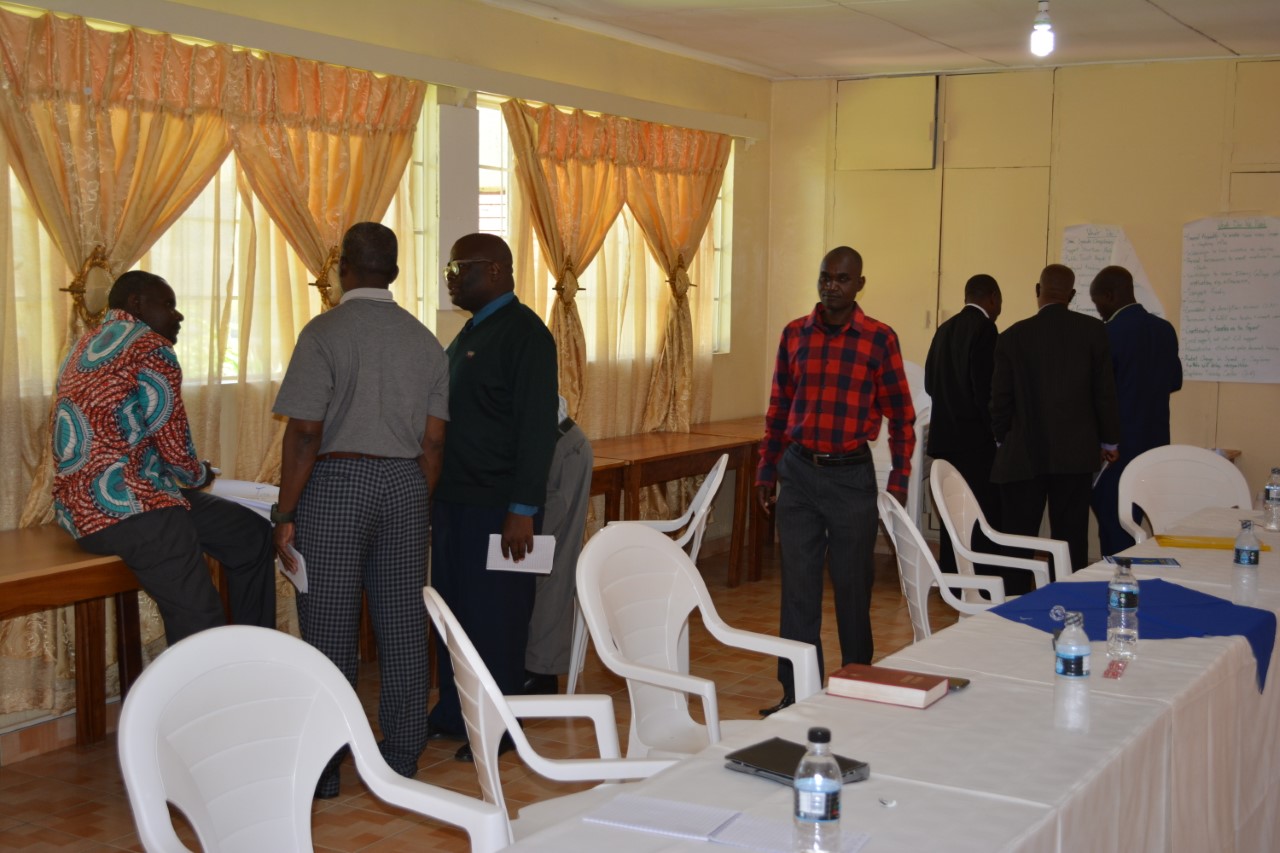A Letter from Jeremy and Luta Garbat-Welch, serving in Malawi
May 2020
Write: Jeremy Garbat-Welch
Write: Luta Garbat-Welch
Individuals: Give online to E200515 for Jeremy and Luta Garbat-Welch’s sending and support
Congregations: Give to D507577 for Jeremy and Luta Garbat-Welch’s sending and support
Churches are asked to send donations through your congregation’s normal receiving site (this is usually your presbytery)
Dear friends,
A feeling of accomplishment filled the room as the inaugural meeting of the Chaplaincy Advisory Committee (CAC) came to an end this past March. The newly elected Chair of the Committee, Rev. Shadrach Jere from the Synod of Livingstonia, stood up to summarize our accomplishments, to acknowledge what lay ahead, and to give thanks.
He thanked the Church of Central Africa Presbyterian (CCAP) General Assembly for initiating the meeting and creating the CAC. The CAC gave the chaplains hope that changes were possible. He thanked me for leading the meeting and encouraging the chaplains. He thanked the PC(USA), and particularly South Frankfort Presbyterian Church, for providing the money needed to hold such a meeting. All of the chaplains echoed his thanks that their travel costs had been covered, as they are usually a major impediment to large gatherings.
Then Rev. Jere surprised me. He encouraged everyone to continue to speak to their synods and the institutions to which they were assigned and to encourage those in charge to fund the work of the chaplains better. “Meetings like this are good, and I am very grateful to the PC(USA) and other funders for helping us. But you know, our synods and institutions should have been able to pay for the transport at least. It is reasonable for us to ask them to do so.” Agreement echoed throughout the room.
So often, when I have tried to meet with people, the issue of transportation money has come up. I am blessed that I do not often have to worry about how I will get somewhere or how I will pay for transportation. But my chaplain counterparts in the CCAP do not have this privilege. Even for those who have working vehicles, money for fuel is a constant problem. Most chaplains have told me that they do not have a budget for their work, so any travel costs come out of their own pockets. And so, I have often been asked to help people pay for their fuel or transport. This is why I was pleasantly surprised when I heard Rev. Jere say that we really shouldn’t have this problem. It’s a sign that the chaplains believe they can be more established and self-reliant, getting small amounts of outside help as an occasional boost, rather than having to depend on it. My goal in creating the Chaplain Advisory Council was to make sure that my Malawian counterparts are helping to drive the Chaplaincy Training Program. Without regular input from chaplains, it would be too easy for me to focus training efforts on things that come naturally to me, or problems important to me. The CAC makes sure that training focuses on what the chaplains themselves perceive as their greatest needs. It has taken two years from the time I first mentioned this idea to CCAP leaders, for the first meeting to take place this past March. I am very grateful to you, our supporters, for helping make this happen. Your financial gifts are what finally made this meeting possible. Fifteen chaplains, representing all five CCAP synods, gathered together with me in Lilongwe, the capital city of Malawi. Lilongwe is fairly central to the CCAP, so it made sense to gather there. However, it was not a simple or inexpensive journey for those coming from Zambia and Zimbabwe. It took two days, multiple bus transfers, and two border crossings for the chaplains from Zimbabwe! Reimbursing their costs was one of the main expenses of the meeting.
We met for two days. We began by answering four questions. As chaplains, who are we? What do we do? What do we have? And what do we need? It was encouraging to see that chaplains serving in hospitals, prisons, and educational settings could find common ground. The five CCAP synods each have their own culture, but these differences did not get in the way. Instead, they provided fuel for conversations and ways to discuss what worked and didn’t work in different settings. These discussions provided encouragement to the chaplains as they realized that even though they might be unprepared for chaplaincy ministry, they were able to find purpose and calling to chaplaincy, and to find resources for their work.The meeting ended with discussions about what the CAC will look like in the future, and what our next steps for training will be. The CAC decided that the goal would be to hold “Introduction to Chaplaincy” training sessions in each synod; multiple “Trauma Healing” sessions, so the chaplains could be trained as leaders; and to pilot a seminar in one of the theological institutions. The changes that COVID-19 has brought into the world interrupt some of the energy that the chaplains have. This is compounded by the fact that we are in the U.S. during this pandemic. But despite this, the meeting was a great encouragement to me. We have some clear ideas of next steps for training to implement, and I am eager to get those started.
Just a couple of weeks after the meeting, we came to the USA for our planned time of visiting our supporters. Of course so much has changed as the pandemic has altered everyone’s plans all over the globe! We thank God that we made it to the USA safely and easily, and we are all healthy. I am also thankful that technology allows us to keep in touch with our friends and colleagues in Malawi. Daily life does not sound too different in Malawi, but there are restrictions to help people be safe. Fear and anxiety are of course everywhere these days. Please especially keep the chaplains in prayer as they adapt their ministries so they can still provide support and care to people.
Thank you again for your ongoing support of this ministry. Your prayers and encouragements keep me going when it takes a long time to implement plans. And again, without your financial gifts, much of this would not be possible.
In Christ’s Service,
Jeremy (for the Garbat-Welch’s)
![]() You may freely reuse and distribute this article in its entirety for non-commercial purposes in any medium. Please include author attribution, photography credits, and a link to the original article. This work is licensed under a Creative Commons Attribution-NonCommercial-NoDeratives 4.0 International License.
You may freely reuse and distribute this article in its entirety for non-commercial purposes in any medium. Please include author attribution, photography credits, and a link to the original article. This work is licensed under a Creative Commons Attribution-NonCommercial-NoDeratives 4.0 International License.


